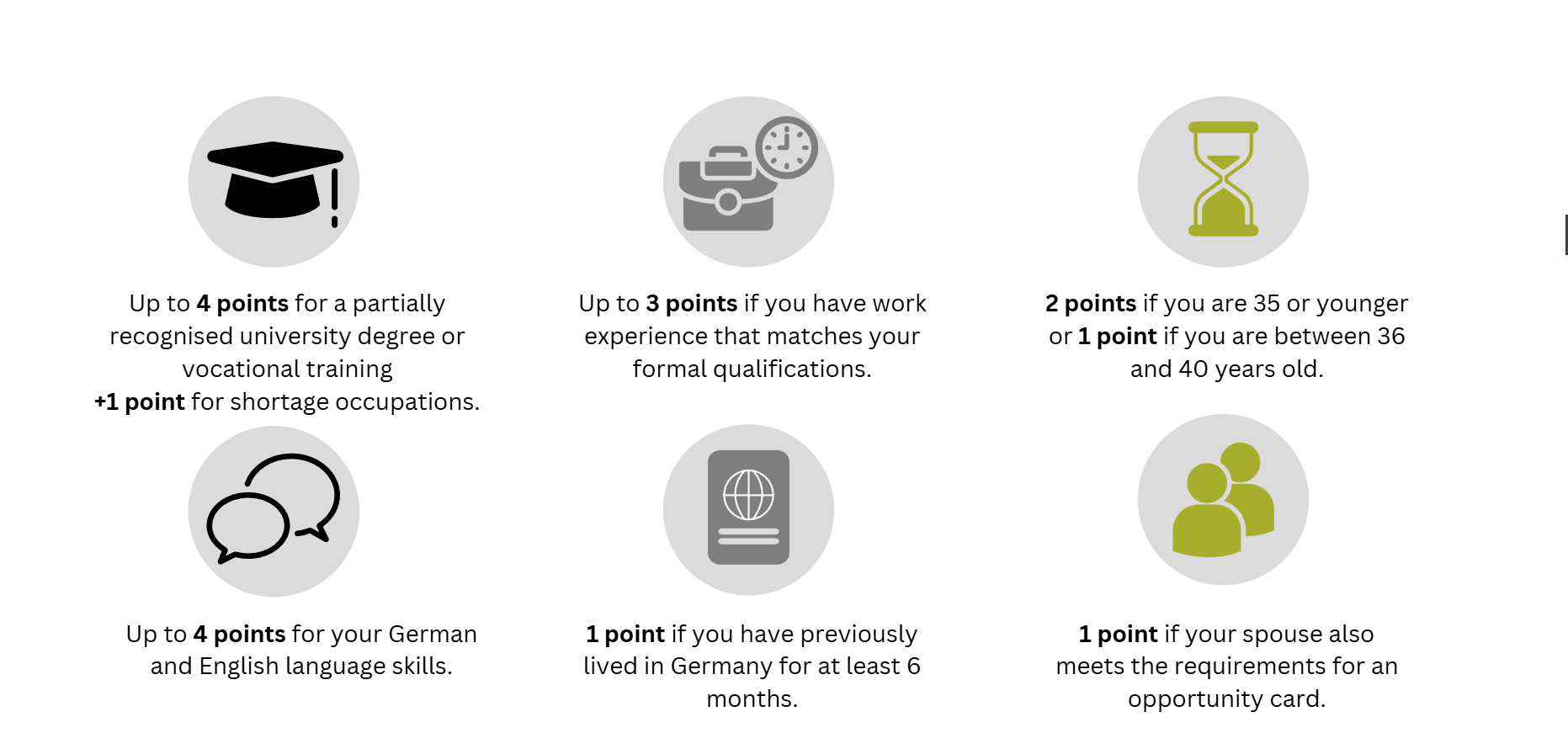Eligibility and Application
Germany, like much of Europe, is undergoing a significant demographic shift. Within the next 15 years, 12.9 million people – roughly one seventh of the country’s current workforce – are expected to retire. This trend is already contributing to widespread labour shortages, particularly in essential sectors such as healthcare and skilled trades.
At the same time, interest in vocational training is declining, with around one-third of apprenticeship positions being left unfilled in 2024. In order to maintain economic productivity and meet workforce demands, Germany will need to attract approximately 400,000 new workers per year.

The Skilled Immigration Act: A Response to Labour Shortages
To address these shortages, Germany introduced the Skilled Immigration Act (Fachkräfteeinwanderungsgesetz) in March 2020. Significant reforms were introduced in November 2023, making the immigration system more accessible for non-EU nationals.
Before these changes, pathways into the German labour market were mostly limited to university grauduates and highly qualified professionals. The new framework is broader and introduces three main entry routes, referred to as “pillars”:
- Specialist pillar – for those with recognised degrees or vocational training
- Experience pillar – for those with relevant work experience but no formal recognition of their qualification in Germany
- Potential pillar – for people who show potential to contribute to the German labour market, even if they do not yet meet full qualification or recognition standards
What is the Opportunity Card?
The Opportunity Card (Chancenkarte) is a residence permit introduced under the Potential Pillar. It allows non-EU citizens to stay in Germany for up to one year to seek gainful employment or to complete recognition measures for their foreign professional qualifications.
A key difference between the Opportunity Card and the existing Job Seeker Visa is that Opportunity Card holders are permitted to work part-time (up to 20 hours per week) during their stay. This not only allows for some income while searching for a job, but also offers a practical advantage during the visa application process: if an applicant already has a part-time job offer, the employment contract can be used as proof of financial means – potentially replacing the need for a blocked account or formal financial sponsorship. The Job Seeker Visa, by contrast, does not permit any employment during the job search period.
Who can apply?
Here are two main eligibility routes:
- Skilled Worker Option
- For applicants with a German academic or vocational qualification, or a fully recognised foreign qualification.
- Points-Based System
- For applicants whose foreign qualifications are not fully recognised in Germany. A minimum of six points must be earned based on factors such as education, work experience, language skills, age, and previous stays in Germany. You can use our opportunity card calculator to check your eligibility.
A summary of the points system can be found in the graphic below.
While meeting these eligibility criteria is essential, it is important to note that qualification alone is not enough. All applicants must also demonstrate sufficient financial means to support themselves in Germany – something that often proves to be a major hurdle.
Points System at a Glance

Financial Means Requirement
All applicants, regardless of the eligibility route they follow, must demonstrate their ability to financially support themselves during their stay in Germany. There are three main ways to meet this requirement:
- Blocked account (Sperrkonto): You must deposit at least €1,091 per month for the duration of your stay. For a 12-month permit, this totals €13,092.
- Declaration of commitment (Verpflichtungserklärung): A German resident may formally guarantee your living costs. This carries financial liability and should be considered carefully.
- Part-time employment contract: if you already have a part-time job offer (up to 20 hours/week) at the time of application, this can be submitted as proof of financial means – provided it meets or exceeds the monthly requirement (€1,091)
terratalent Relocation with Opportunity Card Route
While the Opportunity Card opens up new possibilities for skilled non-EU professionals to come to Germany and search for employment, navigating the process – meeting eligibility requirements, gathering documents proving financial means – can be complex and time-consuming.
At terratalent, we offer a dedicated support route for individuals who want to apply for the Opportunity Card. This includes step-by-step guidance through the entire process, including:
- Initial eligibility assessment – determining whether you qualify via the Skilled Worker route or the Points-Based System.
- Support with document preparation – guidance on gathering recognition documents, language certificates, and proof of qualifications.
- Advice on financial planning – exploring your options for meeting the financial requirements (blocked account, sponsorship, or part-time employment)
- Assistance finding a 20-hour-per-week job contract – connecting you with part-time work opportunities in industries that commonly hire international candidates (e.g. logistics, warehousing, hospitality, or delivery services).
- Access to career coaching, live immigration updates and curated employer contacts.
Whether you are still considering if the Opportunity Card is right for you or you are ready to apply, we offer practical, tailored support to help you move forward with confidence. If you are interested in learning more or starting your Opportunity Card journey, contact us here.
About the author

